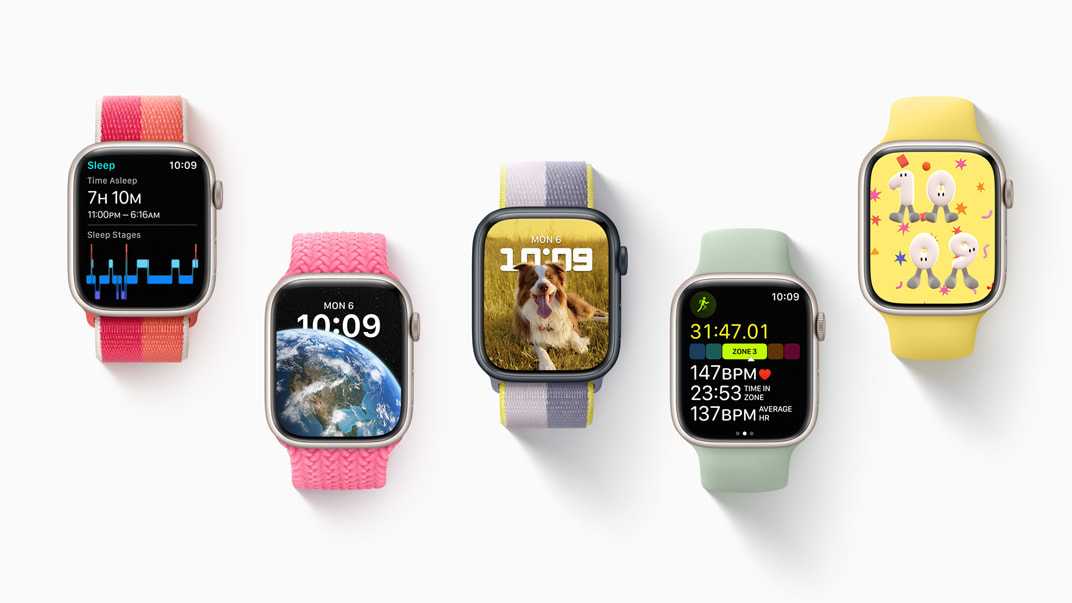Smartwatches and fitness trackers are becoming increasingly common, especially with many consumers having turned their attention to health and fitness improvements during the pandemic. Apple Watch and Google-owned Fitbit continue to be the two leading players in the market, but while Apple has the advantage in terms of overall smartwatch functionality, Fitbit is seen by some consumers as the more robust fitness-oriented device. Apple is looking to change that perception, however, with new features it’s adding to Apple Watch this fall with the launch of watchOS 9.
Apple is updating the Workout app itself to offer users “richer metrics,” while a new Multisport workout option will be appreciated by fitness enthusiasts as it automatically recognizes and switches between activities like swimming, biking, and running. The latter is receiving a significant upgrade as well, as watchOS 9 will be able to provide new running metrics, including Stride Length, Ground Contact Time, and Vertical Oscillation. Tech publication Wired has already labeled the Apple Watch the “best running watch,” thanks to the new performance-oriented features in watchOS 9.
Beyond fitness, watchOS 9 also will be introducing tracking of a user’s sleep stages (something Fitbit already does) as well as the ability to track a person’s atrial fibrillation history – a function that received FDA clearance. As Apple explains, the new feature provides “an estimate of how frequently a user’s heart rhythm shows signs of AFib, providing deeper insights into their condition.”
Cost conscious consumers who care more about fitness features than smartwatch functions may opt for a Fitbit model, as lower-end Fitbits can be found on sale for under $100, whereas the cheapest Apple Watch, the Series 3, retails for $199 and the newer Series 7 starts at $399. That said, with watchOS 9, those who prefer the Apple ecosystem can now get a more comprehensive device. According to Interpret’s New Media Measure®, tracking steps and total distance are both highly used features among both Apple Watch and Fitbit users, but sleep quality is a metric that was paid less attention by Apple users – something that’s likely to change with watchOS 9.




